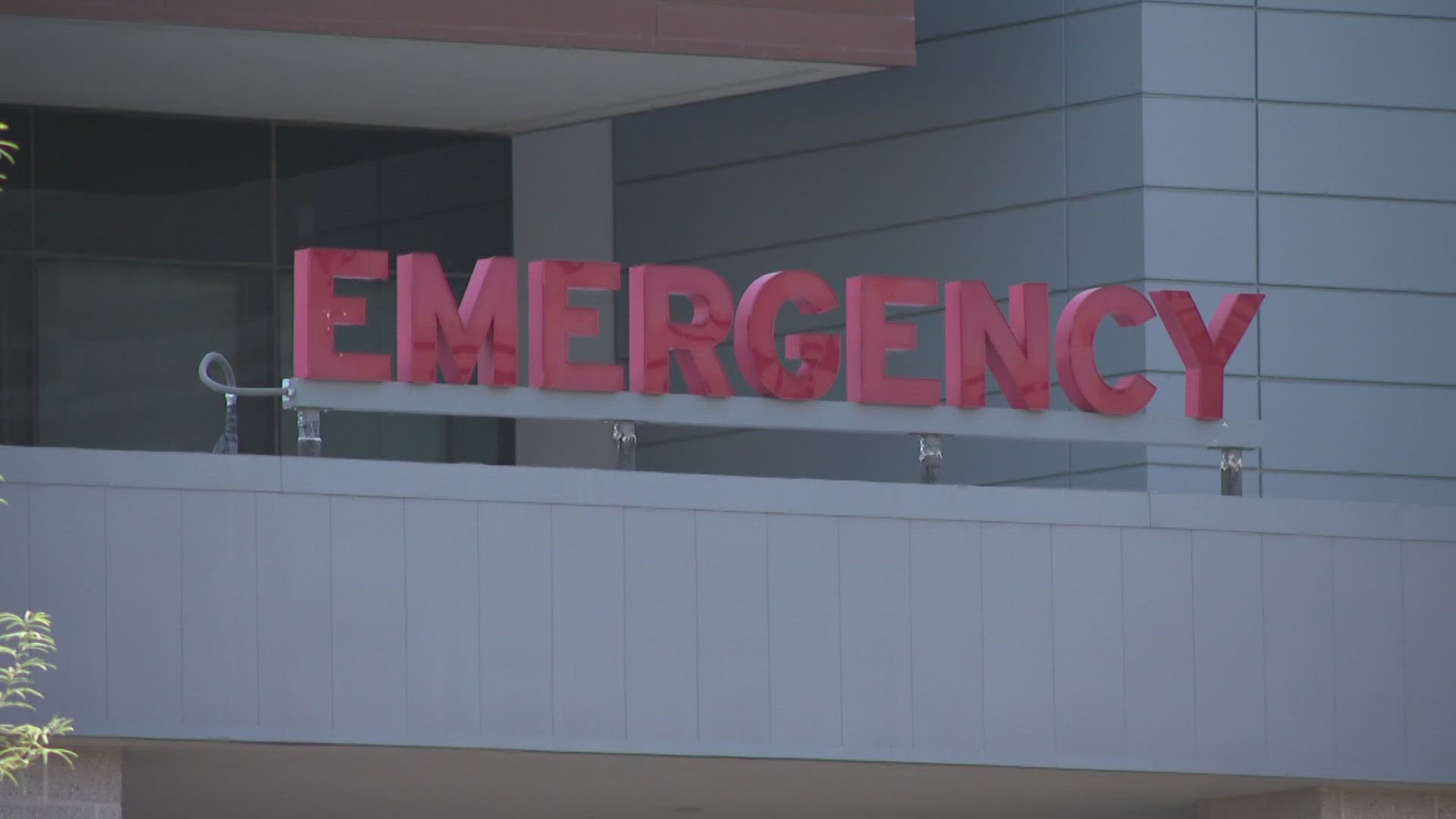PHOENIX — With weeks now of high temperatures during the day and not-so-low temperatures overnight, it’s leading to hospitals seeing more people get sick from heat-related illnesses like heatstroke.
“We’ve seen an increase in the number of patients presenting to our emergency department that have heat-related illness,” Dr. Michael White, Chief Clinical Officer at Valleywise Health, said.
White said given the prolonged and record-breaking string of days over 110 degrees in the Valley, he’s seeing more patients in the hospital this summer.
“Certainly higher than it is usually for this time of the year,” White said. “Mostly related to these heat-related problems.”
White, who’s a cardiologist, said in addition to those illnesses like heat exhaustion and heatstroke patients with other conditions are also coming into the hospital.
“Anecdotally, we are seeing a number of folks that are coming in, you know, that heat is compounding their other medical problems such as cardiovascular disease,” White said.
The idea that heat exacerbates other medical conditions is what Dr. Pope Moseley, a physician and ASU Research Professor, said he and colleague Marisa Domino are looking into.
“Heat is a danger. Heat is the force multiplier of disease,” Moseley said. “And it’s the force multiplier of health-related social needs.”
Moseley notes it’s not just about how hot it is, but how long the heat lasts – like what Phoenix has been experiencing with the not-so-low overnight lows in the 90s.
“Duration of the heat is more important than the magnitude of heat when you talk about illness and death,” Moseley said.
Moseley and Domino are using hospital and population data to look into the broader impact of the heat, not just heat-related illnesses like heatstroke.
“Heart attacks go up, strokes goes up, the hospitalization for dementia goes up, suicides go up 1 to 2%, violent crime goes up. Infections go up, hospital-acquired infections go up,” Moseley said.
Moseley said he hopes the research will help hospitals prepare for patient loads but also hopes to develop an app to help people better assess their risk of being in the heat.
“If you were making a decision, ‘Am I going to go out and spend the day doing something outdoors?’ You’d be able to sort of calculate risk,” Moseley said.
Up to Speed
Catch up on the latest news and stories on the 12News YouTube channel. Subscribe today.

